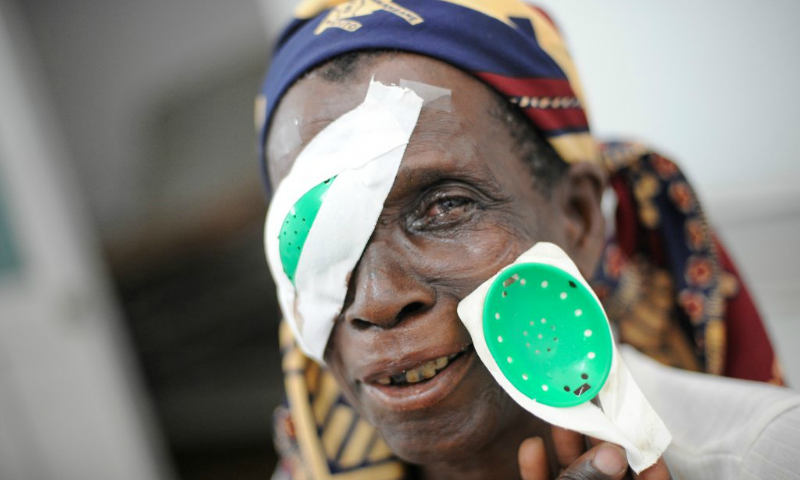
Leaving no one behind
15 per cent of the world’s population has a disability. And more than 11 per cent of the world’s population is over 60 years old. Any way you look at it, people with disabilities and people over 60 make up a huge number of people – people that for far too long have been marginalised and denied a voice.
Discussions around the post-2015 development agenda highlighted how essential it is to clearly address inequality in order to reduce global poverty, and the slogan ‘leave no one behind’ has been widely quoted as a reminder to include the most marginalised and excluded groups. But is that enough?
Persons with disabilities and older people want, and deserve, to be involved in the discussions and decisions that affect their lives. But it’s not easy to be heard if you’re not given the opportunity to contribute. That’s why four civil society organisations decided to collaborate on providing a platform for marginalised people to speak up.
The innovative approach
Sightsavers, ADD International, HelpAge International and Alzheimer’s Disease International worked with the Institute of Development Studies to organise Voices of the Marginalised, a participatory research study in Bangladesh. It was designed so that people with disabilities and older people were not only the interviewees and subjects, but the interviewers and researchers – they were trained to collect and analyse stories from peers in slums and villages. Staff from local NGOs were also trained as researchers to gather stories from colleagues working in the fields of ageing or disability. In total, 11 community peer researchers and seven NGO peer researchers collected 70 stories, 37 of which were given in-depth analysis.
What we learned
From the stories collected and analysed in workshops, the researchers identified 13 priority areas that affect persons with disabilities and older people:
• accidents and disasters
• livelihoods
• access to education
• medical treatment
• family support
• exclusion and mistreatment
• superstition
• access to services
• mobility
• marriage
• rape and sexual abuse
• the role of grassroots community-based organisations
There was significant overlap in the 13 issues identified as critical to both groups, and issues were also very interrelated – for example, not being able to earn an income can impact someone’s ability to access health care. In developing countries, persons with disabilities and older people often have little or no access to income, and this proved to be a critical issue in the research study. The stories gathered illustrate how transformative an income can be in terms of independence, status and self-esteem. Poor access to services, mainly as a result of poor infrastructure, also has a huge impact, and so does the everyday discrimination and exclusion faced by persons with disabilities and older people. The voices of these excluded groups must be heard and listened to, and the next phase of the Voices of the Marginalised project aims to provide the same opportunity for people in Tanzania to have their voices heard.
By Dr. Marion Steff, Policy Advisor: Social Inclusion, Sightsavers
For more stories and recommendations, please refer to the summary or the full report here: www.sightsavers.org/voices
For more information about the work of Sightsavers around the world please visit: http://www.sightsavers.org
To read our featured story on Anuradha, a community leader from Bikaner, India, please click the link below:
http://bit.ly/1TIvO8p
Source & Copyright: UN DESA-DSPD
 Welcome to the United Nations
Welcome to the United Nations